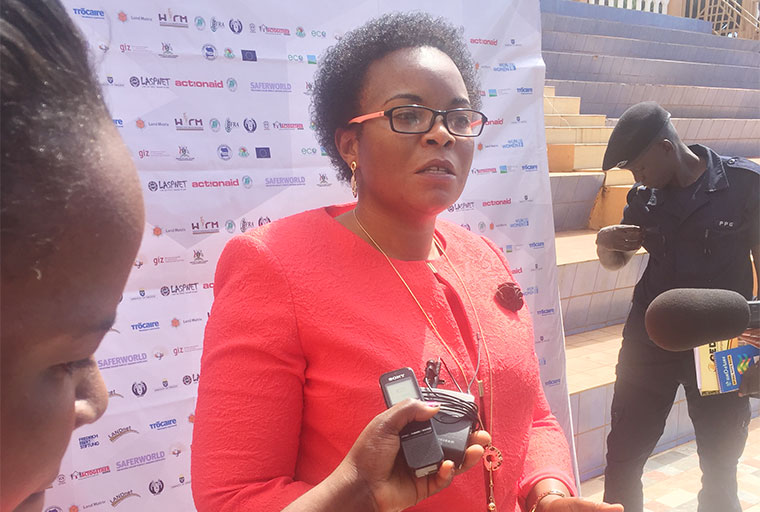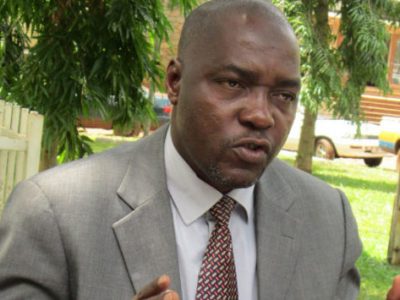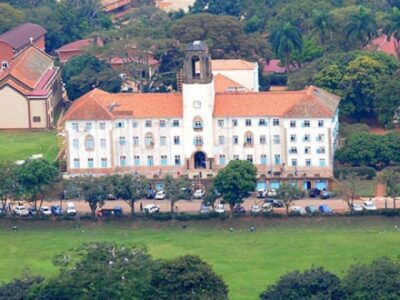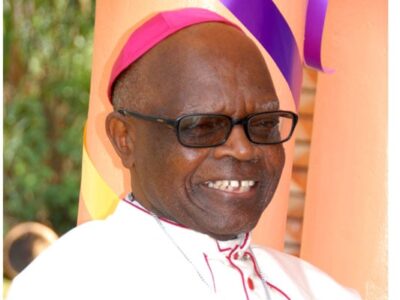Many Ugandans across the country are unconvinced that the political term of office for parliamentary leaders should be extended to seven years but politicians argue that a longer-term would save the country lots of money.
The proposed seven-year term for leaders is now the focus of public hostility. The controversial clause was not in the draft legislation but was smuggled in at the committee stage during parliamentary scrutiny of the Constitution (Amendment) Bill, 2019 – catapulting the clause on to the floor of the House for a second time since 2016.
The clause has since stoked fierce public debate about whether MPs, currently serving five-year terms, deserve two more years in light of the undeniable reality of the heavy cost on Ugandan taxpayers. Speaker of Parliament Rebecca Kadaga said last Thursday that notice will be given for the day of the vote on the Constitution (Amendment) Bill, 2019 after debate closed last week.
But during debate, promoters of the seven-year term made some bold suggestions. Persis Namuganza, the minister of state for Lands, said, “I know some of our colleagues just fear but they love the seven years. Organize a secret ballot [box] and you see… It will go through. I support seven years,” Namuganza said.
Some NRM-leaning MPs suggested that a term extension would slash the time and money spent on organizing elections every five years.
“Before you realize you have spent so much…, by the time you realize you are just beginning to get something in your pocket, it’s already time for elections,” Bubulo West MP Rose Mutonyi said, triggering a bout of laughter. Butemba MP Innocent Kamusiime said: “We have to understand for our voters; that is why they sent us here. Seven years is a good time in Uganda for people to sit down and work. Like it or not, it’s the adequate time.”
According to information from the Parliamentary Commission, each MP is entitled to a monthly salary of Shs 6m exclusive of taxes (total salary including taxes is Shs11m). An MP earns between Shs 25 and Shs 30m monthly when other benefits are included. An additional two years will translate into an extra Shs 600m or Shs 720m for each MP.
MPs also earn a one-off vehicle allowance of at least 200m. A legislator is entitled to a subsistence allowance of Shs 4.5m a month; a town running allowance of Shs 1 million, a monthly medical allowance of Shs 500, 000; a sitting allowance of between Shs 50,000 to Shs 150,000 for committee meetings (Shs 50,000 for committee members, Shs 100,000 for a committee vice chairperson and Shs 150,000 for the chairperson).
They also earn a plenary sitting allowance of Shs 150,000 as well as mileage allowances. Other perks include; allowances for inland travel per diem of Shs150,000 a night and foreign travel per diem is $520 (about shs1.9 million). A private member’s bill titled, Constitution (Amendment) Bill, 2019 was moved by Ndorwa East MP Wilfred Niwagaba.
The bill was read on December 19, 2019 for the first time and referred to the committee on Legal and Parliamentary Affairs for scrutiny as per rule 128 of the Rules of Procedure of Parliament. In its report to the House, the parliamentary committee on Legal and Parliamentary Affairs said MPs planned to consult widely on the proposals but failed to talk to the citizenly due to the outbreak of the Covid-19 pandemic.
The bill seeks to amend Articles 259 and 262 of the Constitution to provide for the involvement of the Judicial Service Commission in the appointment of members of the Electoral Commission (EC); provide for qualifications of a chairperson of the commission; prescribe the grounds for the disqualification of members of the Electoral Commission; require the Electoral Commission to determine election complaints that arise before polling within 10 days and provide for the oath of allegiance of the leader of the opposition.
Other amendments are to provide for the holding of presidential, general parliamentary and local government council elections on the same day; remove representation of the army from Parliament; provide for the attorney general and deputy Attorney General as ex-officio members of Parliament; provide for the Speaker’s Panel and provide for the involvement of the Parliamentary Commission in the appointment of the clerk to parliament.
The bill further seeks to allow political parties or organizations, or voters to challenge presidential elections; restrict the presidential term to two terms only; replace the office of vice president with the office of deputy president and provide for his or her election; repeal the office of prime minister; prohibit the appointment of ministers from among members of Parliament; restrict the number of cabinet ministers and other ministers to twenty-one apieces; provide for the appointment of the Attorney General and Deputy Attorney General by the President on the recommendation of the Judicial Service Commission; and their tenure of office; increase the tenure of office of members of the Public Service Commission from four to five years; mandate the Public Service Commission to determine salaries and allowances of public officers under Chapter Ten of the Constitution; mandate the Public Service Commission, Education Service Commission and Health Service Commission to appoint persons to hold or act in the respective office of the rank of head of department or above; repeal the office of resident district commissioner; change the name of Uganda Police Force to Uganda Police Service and provide for the regulation of its conduct; provide for the establishment and functions of city land boards; and provide for other related matters.
The committee, however, noted the necessity of restoring presidential term limits but also proposed the extension of the term of political office.
“Presidential term limits be restored as proposed in clause 11. The term of all political offices be extended from 5 years to 7 years. The government commences the process of increasing the term of all political office from 5 years to 7 years which is in compliance with provisions of the Constitution and should not apply to the Parliament in which the proposal is effected,” legal committee recommended.
However, Niwagaba, the promoter of the bill, asked MPs to refrain from introducing extraneous matters that were not originally in the bill.
“The issue of the seven years was not in the bill; let’s consider strictly what is in the bill,” he said.
During debate on the committee report last week ministers; David Karubanga (state minister for Public Service), Persis Namuganza (state minister lands), Moses Ali and David Bahati (minister of state for Finance), among others, argued that article 1(3) of the constitution addressed the matter of term limits by giving all powers to citizens to choose who should govern them through a free and fair election. Bahati opposed sections including the ejection of the army from Parliament and the return of the presidential term limits.
“We should leave term limits. In 2005 and 2019, this very parliament made an argument which carried the day that the idea of removing rigidities and restrictions on the rights of the people of Uganda to choose their leaders was a good idea,” Bahati said.
Term limits were scrapped in 2005 in what many saw as a move to allow President Museveni seek another term after he had served his maximum two terms under the 1995 Constitution.
Bahati’s attempts to oppose the introduction of a panel of speakers on the basis that it would introduce a charge on the consolidated fund, which is unconstitutional was rejected on grounds that the panel would consist of merely ordinary MPs and would have no charge on the exchequer.












